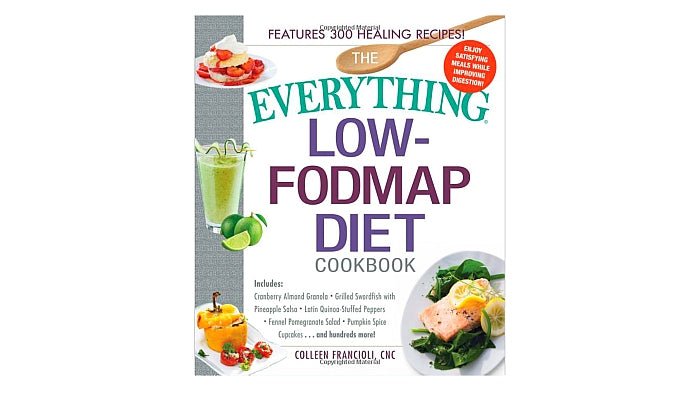What the Heck is the Low-FODMAP Diet? An Expert Explains

Many people are living in pain right now and are unaware their discomfort could be due to consuming onions, garlic, wheat, apples, lactose, sugar-free candy, or other foods high in FODMAPs. Pain and symptoms can include constipation, diarrhea, abdominal pain and distension, lower back pain, lack of sleep, stress, sexual dysfunction, missed work days, and an overall disinterest in social activities.
What Is the Low-FODMAP Diet?
The low-FODMAP diet is an elimination diet designed to help people who endure symptoms of irritable bowel syndrome (IBS) and other digestive issues. This plan is a dietary approach to IBS, and it can help you identify common foods you eat regularly that may actually be triggering issues in your body. The diet is based on food components known as FODMAPs (fermentable, oligosaccharides, disaccharides, monosaccharides, and polyols)—components that contribute to digestive symptoms in patients with IBS. Ultimately, this diet will help you identify and eliminate the types of FODMAPs that are causing your problems, and get you to a place where you can enjoy a wide range of foods without experiencing symptoms.
Who Developed the Diet?
Witnessing her patients with celiac disease and difficult-to-treat symptoms led nutritionist Dr. Sue Shepherd to study the role of fructose and fructans in gut symptoms and develop the fructose malabsorption diet. Then after some research and looking at the role of other poorly absorbed, short-chain carbohydrates in patients with IBS and other FGIDs (functional gastrointestinal disorders), Dr. Peter Gibson at Monash University in Australia collaborated with Dr. Shepherd in 1999 to create a more restrictive diet called the low-FODMAP diet. They developed the acronym FODMAP when labeling the food components that contribute to digestive symptoms in patients with IBS. These components consist of short-chain carbohydrates (saccharides) and sugar alcohols (polyols). The Elimination and Challenge Phases of this diet help IBS patients to understand which foods trigger symptoms. In the beginning of the diet, you will avoid all foods that are high in FODMAPs, and then you will systematically identify which specific FODMAPs are causing your problems.
Why Go on the Low-FODMAP Diet?
The low-FODMAP diet was designed to offer patients with conditions such as IBS, other functional gastrointestinal disorders (FGIDs) such as SIBO (small intestinal bacterial overgrowth), GERD (gastroesophageal reflux disease), celiac disease, or a gluten intolerance a way of eating that does not aggravate symptoms. It does not necessarily “cure” the underlying problem, but it has been shown to be effective in reducing abdominal pain, bloating, flatulence, constipation, and diarrhea. There is also emerging evidence that the diet may be helpful for people who don’t have one of these illnesses, yet experience these same symptoms on a regular basis.
If you have been suffering from intestinal pain or discomfort and think you may be suffering from one of these conditions—but do not yet have a formal diagnosis—it would be helpful to learn more about them so you know the right questions to ask your doctor at your next appointment. Remember, before you begin the low-FODMAP diet, it is essential that you discuss the diet with your doctor. Your doctor is in the best position to ascertain whether the diet is safe for you. If you are experiencing chronic digestive difficulties, it is essential that you speak with your doctor. Many other health problems have symptoms that are quite similar to IBS. It is important to ensure that you have an accurate diagnosis so that you will be assured that you are getting optimal treatment before you start to follow a low-FODMAP diet.
Excerpted with Permission from THE EVERYTHING LOW-FODMAP DIET COOKBOOK by Colleen Francioli
Want to read more?
I Listened to My Doctor When I Should Have Listened to My Gut…Literally
5 Surprising Ways Collagen Heals Your Gut and Aids in Digestion
Potato and Pumpkin Gratin (low FODMAP)
Shakshuka – Baked Eggs in Tomato Stew with Greens (Low-FODMAP, Paleo)
























